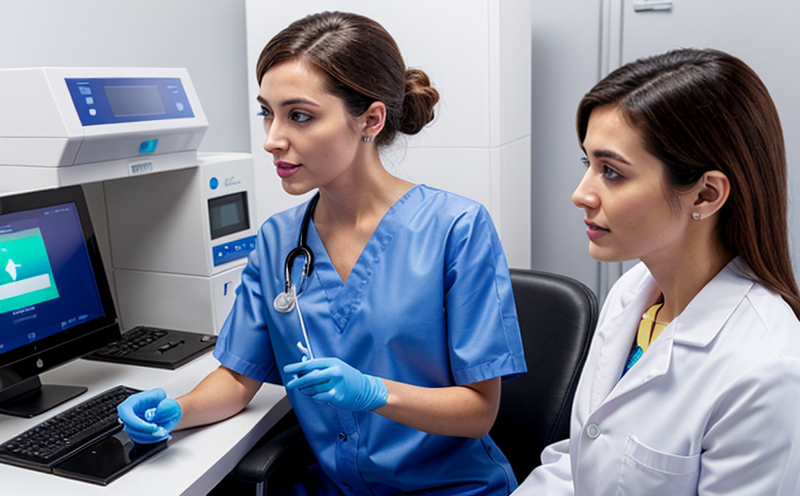Molecular Characterization of Antibiotic Resistance Genes in Bacteria
Antibiotic resistance is one of the most pressing challenges in healthcare today. Understanding and characterizing antibiotic-resistant genes (ARGs) within bacterial populations is essential for developing targeted therapeutic strategies, optimizing treatment protocols, and preventing the spread of resistant strains.
The process involves identifying specific genetic markers associated with antibiotic resistance and quantifying their presence in clinical samples. This service leverages advanced molecular biology techniques to provide accurate and reliable results. The methodology typically includes DNA extraction from bacterial cultures, amplification using polymerase chain reaction (PCR), followed by sequencing to identify the specific ARGs.
Our laboratory employs state-of-the-art instrumentation such as next-generation sequencers and real-time PCR machines to ensure precise detection of even low levels of resistant genes. This approach allows us to provide comprehensive reports that not only identify the types of resistance but also quantify their prevalence, offering valuable insights for healthcare providers.
The significance of this testing cannot be overstated. It helps in tailoring individualized treatment plans, reducing unnecessary use of antibiotics, and ultimately preserving the effectiveness of these crucial drugs. By understanding the genetic basis of resistance, we can contribute to the global effort against antimicrobial resistance (AMR).
In addition to identifying known ARGs, our service also includes a comprehensive analysis aimed at discovering novel resistance mechanisms that may not yet be cataloged in existing databases. This proactive approach ensures that healthcare professionals have access to the most up-to-date information on bacterial resistance patterns.
Our molecular characterization service is designed for various clinical and research settings where antibiotic resistance is a concern, including hospitals, clinics, and academic institutions. It supports compliance with international standards such as ISO 20689:2015 and EUCAST guidelines, ensuring that the results are widely accepted in regulatory environments.
The accuracy of our testing depends on strict adherence to standardized protocols and rigorous quality control measures throughout each step of the process. This includes thorough validation of reagents, calibration of instruments, and regular performance checks to maintain high standards of reliability and reproducibility.
Benefits
- Accurate identification of antibiotic resistance genes (ARGs) in bacteria.
- Rapid turnaround times for results, enabling prompt clinical decision-making.
- Comprehensive reports that include quantitative data and insights into novel resistance mechanisms.
- Supports compliance with international standards like ISO 20689:2015 and EUCAST guidelines.
- Promotes the development of targeted therapeutic strategies, reducing unnecessary antibiotic use.
- Aids in monitoring trends in bacterial resistance over time, contributing to public health initiatives.
Industry Applications
This molecular characterization service finds application across multiple sectors within the healthcare industry. In hospitals and clinics, it assists clinicians in diagnosing infections more accurately and selecting appropriate treatment regimens. For pharmaceutical companies engaged in drug discovery, our service provides critical data on emerging resistance patterns that could impact new product development.
Academic researchers benefit from this service by gaining access to cutting-edge tools for studying the evolution of antibiotic resistance. Additionally, it plays a key role in epidemiological studies aimed at tracking the spread of resistant strains and identifying geographical hotspots.
The insights gained from our molecular characterization can also inform policy decisions related to antimicrobial stewardship programs. By providing evidence-based data on resistance trends, we contribute to efforts to combat AMR both locally and globally.
International Acceptance and Recognition
The molecular characterization of antibiotic resistance genes in bacteria is widely recognized as a vital component of global healthcare strategies. Our service adheres strictly to international standards, ensuring that the results are valid across different regulatory environments.
ISO 20689:2015 provides specific guidelines on microbiological methods for the identification and quantification of antibiotic resistance genes in environmental samples. Compliance with these standards ensures consistency and comparability of results internationally.
EUCAST (European Committee on Antimicrobial Susceptibility Testing) also plays a crucial role in standardizing methodologies used in clinical settings to monitor resistance patterns effectively. By following EUCAST recommendations, our service contributes to the harmonization of practices across Europe and beyond.
Our laboratory is accredited by bodies such as CLIA (USA), ISO 17025 (International Organization for Standardization), and UKAS (United Kingdom Accreditation Service). These accreditations demonstrate our commitment to delivering high-quality, reliable results that meet the highest standards in the field.
Recognitions from reputable organizations like the World Health Organization (WHO) further underscore the importance of accurate molecular characterization in addressing AMR. Our service not only meets these global benchmarks but also exceeds them by incorporating additional layers of quality assurance and validation.





